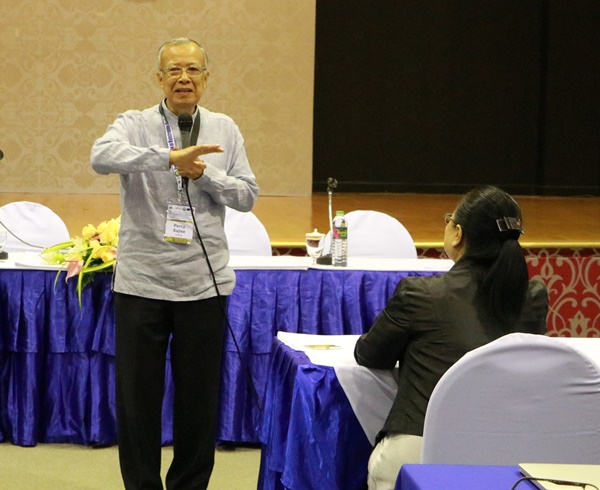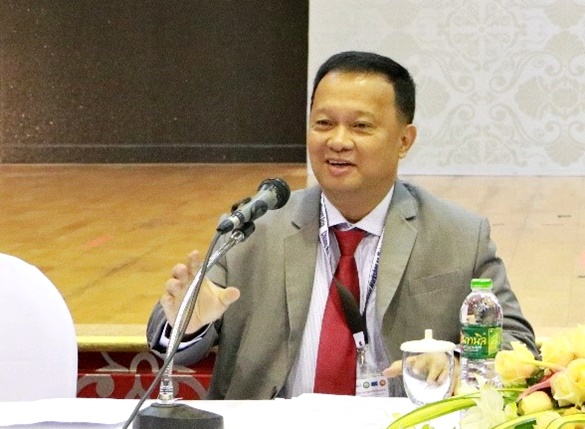 This concern is highlighted by the absence of a clear and adequate articulation of agrobiodiversity in existing regional and national policy frameworks and programs that deal with agriculture or biodiversity despite its essential links to food systems and nutrition and its importance in enhancing local livelihoods. However, there are initiatives on the ground from which significant lessons can be learned, such as those on traditional ecological knowledge and sustainable use of agrobiodiversity, the integration of agrobiodiversity into local development programs and related initiatives for building capacities of communities and governments, and the integration of conservation of plant genetic diversity with landscape-level planning and decentralized government programming, while others yet asserted the crucial link between gender, capacity-building, and the local knowledge systems and their relevance to sustainable development.
This concern is highlighted by the absence of a clear and adequate articulation of agrobiodiversity in existing regional and national policy frameworks and programs that deal with agriculture or biodiversity despite its essential links to food systems and nutrition and its importance in enhancing local livelihoods. However, there are initiatives on the ground from which significant lessons can be learned, such as those on traditional ecological knowledge and sustainable use of agrobiodiversity, the integration of agrobiodiversity into local development programs and related initiatives for building capacities of communities and governments, and the integration of conservation of plant genetic diversity with landscape-level planning and decentralized government programming, while others yet asserted the crucial link between gender, capacity-building, and the local knowledge systems and their relevance to sustainable development.
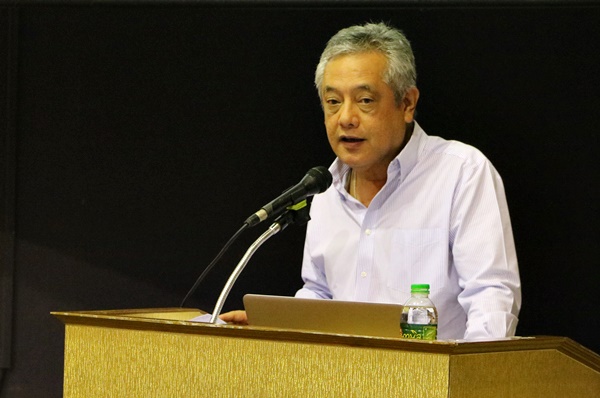 These challenges and opportunities provide impetus for the development of a regional action plan on agrobiodiversity mainstreaming, conservation, and sustainable use. Strategic action points along the four elements of the Convention on Biological Diversity (CBD) program of work, namely: assessments, adaptive management (tweaked to innovations and best practices for purposes of the workshop), capacity-building, and mainstreaming were identified and discussed by the participants. Their output, with fine-tuning, fleshing out, and further general processing, would serve as inputs to the regional action plan. There is yet much work to be done. However, this workshop is the important first step towards a strategic plan of action.
These challenges and opportunities provide impetus for the development of a regional action plan on agrobiodiversity mainstreaming, conservation, and sustainable use. Strategic action points along the four elements of the Convention on Biological Diversity (CBD) program of work, namely: assessments, adaptive management (tweaked to innovations and best practices for purposes of the workshop), capacity-building, and mainstreaming were identified and discussed by the participants. Their output, with fine-tuning, fleshing out, and further general processing, would serve as inputs to the regional action plan. There is yet much work to be done. However, this workshop is the important first step towards a strategic plan of action.
This Regional Workshop on Agrobiodiversity was a partnership among SEARCA, the ASEAN Center for Biodiversity (ACB), and Maejo University (MJU) whose strategic institutional foci are agriculture and rural development (for SEARCA and MJU) and biodiversity (for ACB). Both the SEARCA Director, Dr. Gil C. Saguiguit, Jr., and ACB Executive Director, Atty. Roberto V. Oliva acknowledged the support of the European Union (EU) to the regional workshop through the EU-funded and ACB-implemented programme called Biodiversity Conservation and Management of Protected Areas in ASEAN (BCAMP).
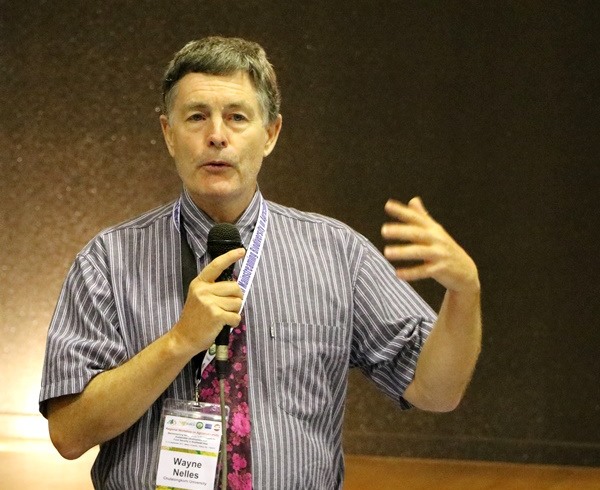
In his keynote paper, SEARCA Senior Fellow Dr. Percy E. Sajise stressed the importance of agrobiodiversity as a basic element of sustainable development. He emphasized the multi-functionality of agrobiodiversity, serving as link to productivity and resilience of ecosystems; buffer for climate change; and basic foundation for food security, human health and ecosystems services. Dr. Sajise discussed biodiversity as it relates to the ASEAN vision of sustainable development; the status and capacity of achieving ASEAN biodiversity and agrobiodiversity conservation and sustainable use targets; and opportunities and challenges in the conservation, sustainable use and mainstreaming of agrobiodiversity in the region. He offered recommendations to mainstream biodiversity in agriculture, some of which are as follows: documentation of good practices in deploying and managing agrobiodiversity in ASEAN; research on the “hidden values” of agrobiodiversity; sustained and properly valued agrobiodiversity services; 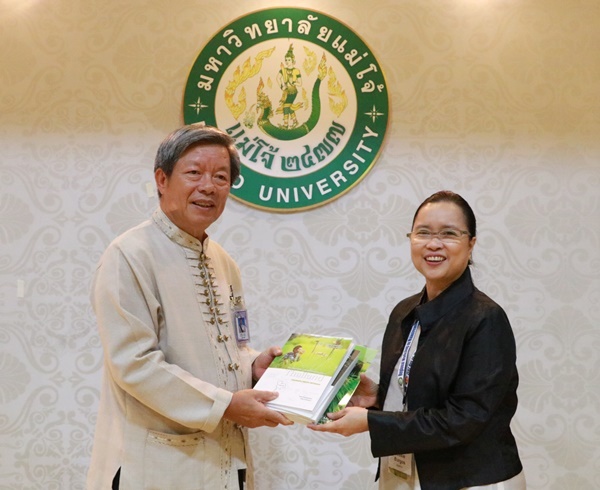
Dr. Wayne Nelles, Visiting Scholar of Chulalongkorn University School of Agricultural Resources (CUSAR), served as the regional workshop Technical Coordinator. Around 70 representatives from the ministries of environment and of agriculture of the ASEAN Member States, selected universities across the region, research organizations, non-government organizations (NGOs), and development partners participated in the workshop. (Carmen Nyhria G. Rogel)

All photos courtesy of Maejo University.

